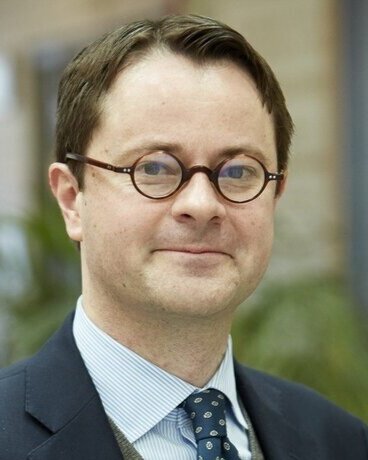Forgiveness and Human Flourishing
Tyler J. VanderWeele
When: 10 June 2020, 8AM-9AM EST
“Forgive us our trespasses as we forgive those who trespass against us.” These words, taken from the Lord’s prayer, are well known to Christians throughout the world – perhaps so familiar that we, at times, lose sight of their real meaning.
In 1983, Pope John Paul II walked into a Rome's Rebibbia Prison and spent hours with an inmate – consoling him, praying with him, and then forgiving him. Two years earlier that inmate stood in the midst of a crowded St. Peter's Square in Vatican City and fired four shots at the Pope in an attempt to assassinate him. The magnanimity and charity John Paul II demonstrated by forgiving this assailant gives us a profound and vivid example of how we should live those words we repeat so often in the Our Father.
Does forgiveness really help? To what extent does it promote flourishing? In this talk, Tyler Vander Weele will briefly consider the concept of forgiveness, review the empirical evidence relating forgiveness and health, and return a return to the question the first Pope, Saint Peter, posed to Jesus, "How often am I to forgive?"
ABOUT THE SPEAKER:
Tyler J. VanderWeele, Ph.D., is the John L. Loeb and Frances Lehman Loeb Professor of Epidemiology in the Departments of Epidemiology and Biostatistics at the Harvard T.H. Chan School of Public Health, Director of the Human Flourishing Program and Co-Director of the Initiative on Health, Religion and Spirituality at Harvard University. He holds degrees from the University of Oxford, University of Pennsylvania, and Harvard University in mathematics, philosophy, theology, finance and applied economics, and biostatistics. His research concerns methodology for distinguishing between association and causation in observational studies, and the use of statistical and counterfactual ideas to formalize and advance epidemiologic theory and methods. His empirical research spans psychiatric, perinatal, and social epidemiology; the science of happiness and flourishing; and the study of religion and health, including both religion and population health and the role of religion and spirituality in end-of-life care. He is the recipient of the 2017 COPSS Presidents’ Award from the Committee of Presidents of Statistical Societies. He has published over three hundred papers in peer-reviewed journals, and is author of the book Explanation in Causal Inference, published by Oxford University Press. .
ABOUT THE EVENT:
WHEN: Wednesday, June 10, 2020 8:00AM TO 9:00AM EST. (Zoom)


